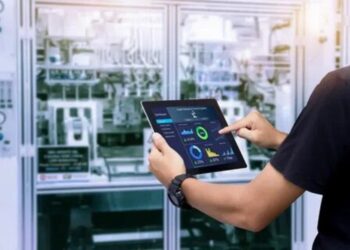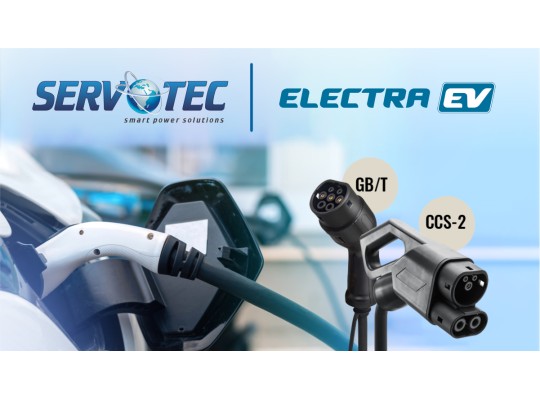The global water leakage detector systems market is projected to rise at a CAGR of 5.8%, thereby increasing from its current valuation of US$ 4.7 billion to US$ 8.3 billion by the end of 2033. Water leaks cause millions of dollars in damage and waste around the world and are widespread in both residential and non-residential settings.
The global water leakage detector systems market is anticipated to grow at a steady CAGR of 5.8% from its current valuation of US$ 4.7 billion to reach US$ 8.3 billion by the conclusion of 2033. Water leaks present a significant challenge worldwide, causing substantial financial losses and resource wastage across residential and non-residential sectors.
Water leakage detectors, employing electromechanical mechanisms, play a pivotal role in identifying and responding to water leaks within various systems and processes. Deployed as essential safety devices in residential, commercial, and industrial settings, these detectors swiftly alert individuals to potential hazards, thereby mitigating risks and minimizing waste.
Moreover, these detectors serve to regulate water flow within pipelines, promptly detecting leaks and prompting necessary actions. With diverse designs and functionalities, water leakage detectors find secure application across a spectrum of commercial, residential, and industrial contexts.
The escalating global population coupled with dwindling water resources underscores the urgency of water conservation efforts. Failures in water supply infrastructure and institutional shortcomings contribute significantly to water scarcity, affecting over 1.5 billion people worldwide according to the UN.
Insights on a Country-by-Country Basis
Why is the United States Leading the North American Market?
The United States stands at the forefront of the North American market due to significant economic expansion, rapid urbanization, a burgeoning population, and elevated living standards. These factors underscore the urgent need for robust infrastructure, prompting substantial government investment in combating water wastage through the implementation of water leak detection systems.
In 2022, the United States market boasted a valuation of US$ 1.9 billion, driven by stringent government regulations and standards. Notably, the United States mandates the deployment of leak detection systems on liquid pipelines, further fueling market growth.
Which Countries are Propelling Market Expansion in Asia Pacific?
The Asia Pacific region witnesses a burgeoning demand for water leakage detector systems, particularly in developing countries engaged in expanding their water transportation infrastructure.
Japan and South Korea are pivotal drivers of market growth in Asia Pacific, spurred by escalating requirements for water leakage detection. Japan, in particular, has made substantial investments in water management infrastructure, aiming to achieve complete deployment of smart water meters by 2025 with support from the Japan Water Research Center (JWRC).
What is Germany’s Role in the European Market?
In Europe, the adoption of water leakage detector systems is on the rise, driven by the pressing need to mitigate the risk of severe water leaks in cities characterized by complex networks of aging pipelines.
Germany emerges as a key player in the European market, with the government spearheading initiatives to deploy water leakage detector systems across water transmission networks. These systems are instrumental in monitoring flow rates and swiftly detecting water leaks, thereby addressing the critical issue of water wastage within the region.
Competitive Scenario in the Market
The global landscape of water leakage detector systems is characterized by fragmentation, featuring a multitude of international and regional contenders vying for prominence in an increasingly competitive arena. Furthermore, the competitive intensity in the global market is escalating with the emergence of new startups offering AI and IoT-based solutions, poised for growth over the forecast period.
In May 2022, Ovarro Limited unveiled the Eureka5, an advanced leak noise logger designed to elevate the precision of leak detection. With a simple button press, the Eureka5 enhances the accuracy of pinpointing leak locations, leveraging the crucial factor of sound velocity within pipes.
Ben Crabtree, the Control Point product line manager at Ovarro, emphasized in March 2022 that while the UK water sector has made significant strides in leakage reduction, adopting a data-driven strategy focusing on flange and joint assemblies, alongside comprehensive worker training, can yield substantial benefits.
February 2022 witnessed the introduction of the ABB Ability Smart Solution for Wastewater, a sophisticated technology addressing the challenge of achieving low energy consumption while meeting demanding operational requirements in wastewater treatment plants. Anchored on advanced process control (APC) and digital twin and simulation technologies, this innovative system forecasts future operational needs with precision.
In December 2021, ABB launched an electromagnetic flowmeter featuring bidirectional communication capabilities, aimed at facilitating intelligent water loss management. The AquaMaster 4 Mobile Communications devices leverage NB-IoT and 4G-LTE networks, empowering plant engineers to monitor water system conditions effectively.
Collaborating with a Danish water environment specialist in October 2021, ABB embarked on creating the next generation of smart water solutions geared towards promoting prudent water usage. These solutions empower customers in the sector to exert better control over water availability and enhance plant operational efficiency through comprehensive process and energy optimization measures.













